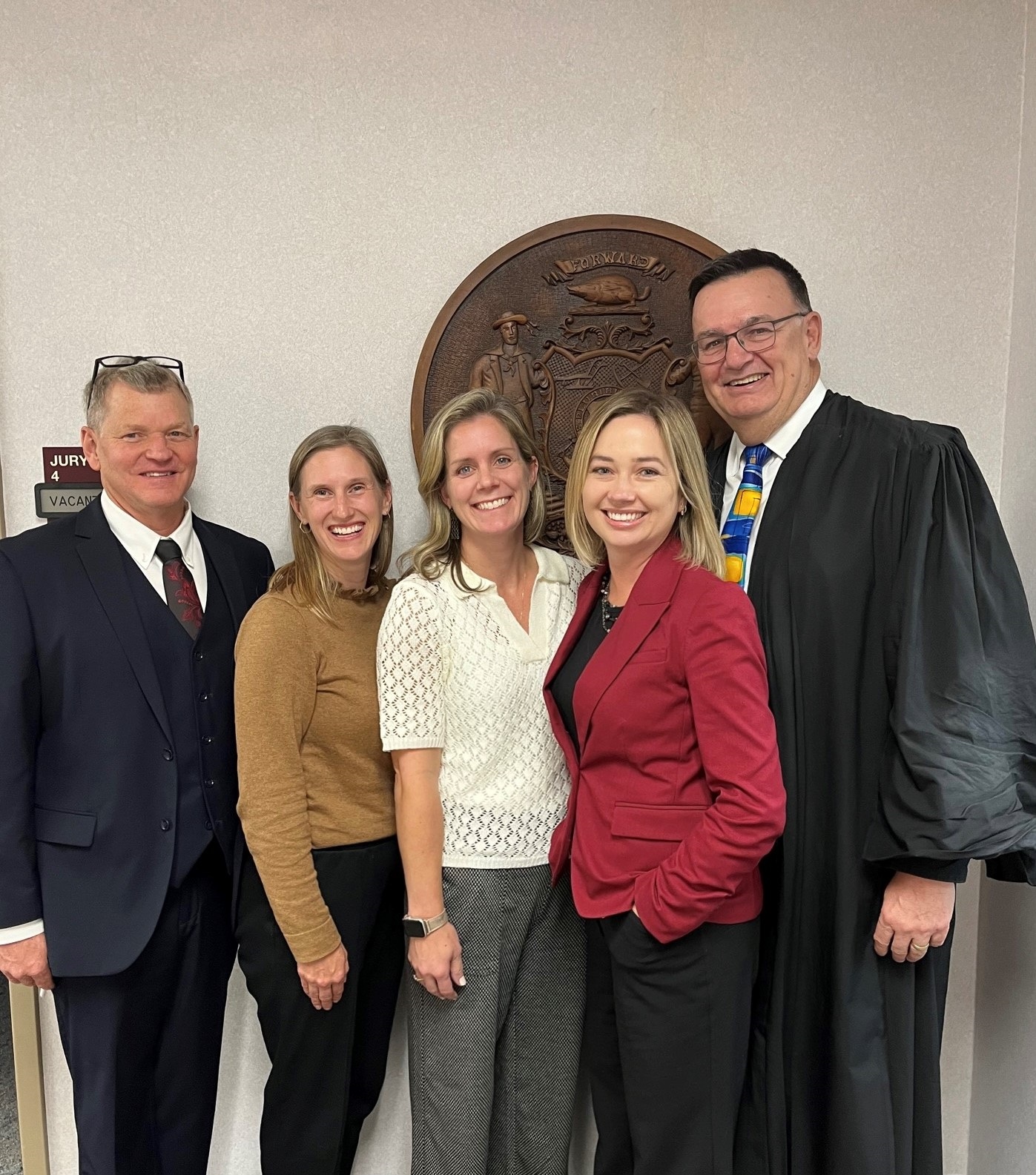Two Wisconsin circuit courts are stepping on the national stage in a groundbreaking effort to transform how courts operate. Monroe and La Crosse counties, part of Wisconsin's seventh judicial district, have been tapped to join an innovative national pilot program aimed at transforming the courtroom experience.
The Fairness Challenge Pilot Project initiative, developed by LaGratta Consulting and supported by the State Justice Institute, is designed to implement and measure procedural fairness improvements in courts with the ultimate goal of enhancing public trust and confidence in the judicial system. Through a combination of professional development, interactive learning, and litigant feedback, the project seeks to ensure that fairness is at the forefront of court operations.
"I think the independence of the judiciary is something that's being questioned more these days," said Chief Judge Scott Horne. "The public and litigants must understand that decisions are principled and made after full consideration of both sides. Hopefully, the feedback will help us identify things that we as judges can do or say that will reinforce the perception of a principled and independent judiciary and help restore trust."

The Fairness Challenge Pilot Project will focus on improving the experience of self-represented litigants and adapting practices for remote court settings, a growing area of focus since the rise of virtual court proceedings. By prioritizing user feedback, the project will help courts gauge how litigants perceive fairness in their proceedings, providing valuable insights that can be used to make meaningful improvements.
"I hope that we increase our understanding of how to communicate effectively to those before us. I also hope that we will make our system more understandable to the layperson," said La Crosse County Circuit Court Judge Elliott Levine. "This should increase accessibility for the public. My plan is to incorporate those techniques in my courtroom daily."
Procedural fairness, which centers on ensuring that court processes are impartial and that individuals feel they are heard and treated respectfully, is a key factor in building and maintaining public trust in the judicial system. Research consistently shows that when litigants believe they have been treated fairly, they are more likely to comply with court orders and less likely to re-offend.
To further these goals, the Fairness Challenge will provide Monroe and La Crosse counties with specialized training, including fairness workouts—daily exercises designed to help judges and court professionals focus on fairness practices.
"It is important that individuals that come in contact with our courts feel heard and that they were treated respectfully and fairly, even if they are not happy with the overall result," said Deputy Chief Judge Todd Ziegler. "Taking on this project shows the public that we take their concerns seriously. This is just the start of the process to increase the public's trust."
The insights and innovations generated from this pilot program will not only benefit Monroe and La Crosse counties but could also lead to broader changes in court practices at both the state and national levels. By testing new approaches to procedural fairness, local judges and court professionals will have the opportunity to refine practices that could serve as models for other courts across the country.
"I hope these changes will be a new paradigm for the courts. I think La Crosse and Monroe counties are already vested in improving what we do and how we treat people before us. My hope is that there will be some universal tools that we can share with the rest of the state," said Judge Levine.
As Monroe and La Crosse counties take the lead in this groundbreaking effort, Wisconsin is setting the stage for courts across the nation to follow suit in prioritizing fairness, transparency, and public trust. The Fairness Challenge Pilot Project will begin its intervention phase in 2025, with national training and engagement opportunities for court professionals throughout the country.
Third Branch eNews is an online monthly newsletter of the Director of State Courts Office. If you are interested in contributing an article about your department’s programs or accomplishments, contact your department head. Information about judicial retirements and judicial obituaries may be submitted to: Sara.Foster@wicourts.gov

